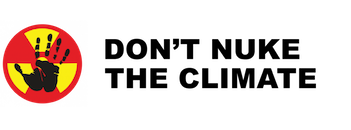Fire on vessel at Hamburg
Summary
Mai 1st, 2013 the combined RoRo/container vessel Atlantic Cartier was on fire at the harbour of Hamburg (Germany). The fire was extinguished by 5 fire-fighting boats and 296 firefighters after about 16 hours. Only 500 meters from the burning ship the opening church service of Church Days was held with 35,000 people in the heart of the 1,800,000 citizens town. Nobody have been warned or evacuated.
Two weeks later an answer from the federal state parliament showed it was loaded with about 8.9 t fissile uraniumhexafluoride and 11.6 t fissile uraniumoxide or fuel rods beside 180 t Ethanol, about 3.8 t cartridges for weapons 2.6 t solid propellant and much more dangerous goods. The fire burned 70 new cars in the body of the ship, so some endangered containers right on the top were cleared in hurry during fire-fighting operations. The UF6 came probably from USA with destination Uranium Enrichment facility Gronau (D), Fuel Rod-facility (D) or somewhere at the Netherlands Uranium Enrichment Facility Almelo (Netherlands)[1]. The uraniumoxide was supposed to be delivered to France.
The story
This story happened Wednesday, May 1st, 2013, a public holiday. With tradition the union workers marching, somewhere else people barbecueing or Nazis trying to march, but being blocked by antifascists, struggle with police, burning barricades and cars, same procedure as every year. Additionally the Church Days took place at Hamburg Harbour City, the heart of the second largest city of Germany with a population of 1,800,000.
While the opening service has been held with 35,000 participants 500 m away a fire started to burn some 70 cars in the body of the 293 m long and 33 m wide combined RoRo- and container vessel. At 8:02 PM a fire fighting operation begun with 2 fire fighting ships and 3 tugs cooling the vessel's hull, and 251 fire fighters from land teams were engaged (including displacement 296) [2]. 44 minutes later they got the information about dangerous goods, including some 8.9 t uraniumhexafluoride (spokesman of interior ministry: 6.9 kg, carryover would be package) and 11.6 t uraniumoxide or fuel rods (info by UN-Number) beside tons of cartridges for weapons, propellant, ethanol and other explosives, toxic, flammable or corrosive load on board [3].
They tried to clear the goods at risk, but due to the holiday they got no crane driver[4], so the clearing operation started not till 11:08 PM with a harbour- and a mobile crane. Another problem was the absence of unique effective extinguishing agent CO2 for the UF 6 , which was ordered by emergency booking but was out of stock in whole northern Germany. Rescue work of the containers ended at 3:35 AM at 2 nd May, at 5:11 AM the fire was under control and at 11:41 AM extinguishing work was completed[5].
Media reported only a fire on a vessel with dangerous goods. There was no specific warning or evacuation (which is impossible in such a big city). Two weeks later an answer to a request to the government released the information about radioactive material. The officials planned to put one fire-fighting boat off duty, maybe they will reflect these plans now.
Action!
Only 2 days after publication of the government's answer a planned MOX-fuel transport to Brokdorf NPP until Friday, May 24, 2013 became public. MOX fuel is a mix of Uranium- and Plutoniumoxide and is more unrulable as normal fuel rods are. Last of these transports to Grohnde NPP went along with huge protest, climbing and lock-on action.
One of the next events will be an anti-nuclear camp a few steps from the uranium enrichment facility Gronau, fuel fabrication facility Lingen and other nuclear industry.
Background
Nuclear transports via Hamburg are no exception, but normally happen about 2 times a week. The harbour is one of the most famous transfer sites in Germany, uranium (products) from Russia, France, USA, Netherlands and the rest of the world are passing here. Some 500,000 packages with radioactive content are carried every year on German streets, seaways and with planes. About 10,000 of them are directly for nuclear power industry, leftover is used for measurement, medical or research purposes.[6]
Links
- original answer from Hamburg Goverment: Drucksache 20/7891 or direct link
- Answer
- Appendix 1: timetable of radioactive ACL-Vessels passing Hamburg
- Appendix 2: list of dangerous-good load
- SAND Initiative with Info about Nuclear Transports (german language)
Media coverage
German
- NDR (northern German broadcasting service)
- DRadio
- TAZ newspaper
- Tagesschau TV interview with Firefighter
- Welt newspaper
- urantransporte
English
French
References
- ↑ http://www.sofa-ms.de/home.html as at May 21,2013
- ↑ http://www.gruene-fraktion-hamburg.de/sites/gruene-fraktion-hamburg.de/files/dokument/20-07891.pdf as at May 20, 2013
- ↑ http://www.gruene-fraktion-hamburg.de/sites/gruene-fraktion-hamburg.de/files/dokument/20-7891_anlage2.pdf as at May 20, 2013
- ↑ http://www.dradio.de/dlf/sendungen/interview_dlf/2111989/ as at May 20, 2013
- ↑ http://www.gruene-fraktion-hamburg.de/sites/gruene-fraktion-hamburg.de/files/dokument/20-07891.pdf as at May 20, 2013
- ↑ Landtag Schleswig-Holstein Drucksache 17/2476 as at May 03, 2012

